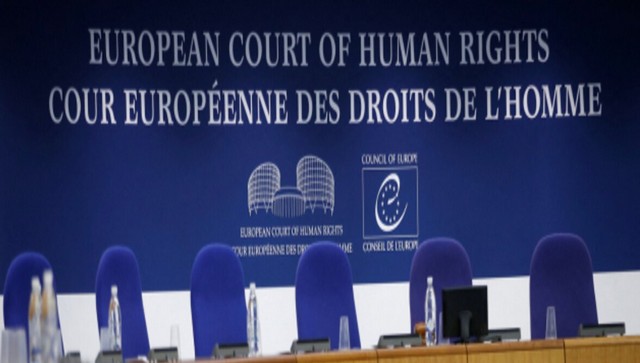UK prime minister Rishi Sunak continues to be haunted by his Rwanda deportation plan. While Sunak has made stopping arrivals of immigrants crossing over from France on small boats a central aim of his government, he continues to face a rebellion from the right-wing of the Conservative Party who claim his plans don’t go far enough. These rebels include ex-prime minister Boris Johnson and Liz Truss. But now, Sunak is facing another roadblock – so-called pajama injunctions. But what are they exactly? And why have they become such a problem for Sunak? Let’s take a closer look: What are they? As per Politico, these ‘pajama injunctions’ are issued by the European Court of Human Rights. They get their name from the fact that they often occur late at night.
In British folklore judges who issued such injunctions were already in the pajamas, as per The Guardian.
Sunak’s government has been desperate to stop most illegal immigrants – who say they are fleeing wars and abuse in the West Asia, Africa and South Asia – from coming in. The majority of arrivals in the last five years whose cases have been completed have been given refugee status. The British government has insisted that 90 per cent making the journey are men, and many of them economic migrants rather than genuine refugees. Sunak has made a vow to tackle illegal immigration the centrepiece of his prime ministership. But the injunctions by the ECHR have halted several flights, even those that have been sitting on runways, from taking migrants to Rwanda. The court is allowed to halt such deportations under its “Rule 39” order – where it deems a risk of “serious and irreversible harm” to individuals. These orders are interim measures and thus lapse after a certain period. Why have they become such an issue for Sunak? Because despite Sunak’s tough talk, not a signal migrant has been deported to Rwanda. This, despite the UK paying Rwanda hundreds of millions of pounds as part of the agreement. Meanwhile, the UK Supreme Court also struck a blow to Sunak’s deportation plan when it declared the policy illegal.
Sunak, to counter such rulings that repeatedly thwart his policy, unveiled new legislation to tackle illegal immigration.
The “Safety of Rwanda Bill” essentially aims to block asylum seekers bringing further court challenges against their deportations. [caption id=“attachment_13466402” align=“alignnone” width=“640”] Rishi Sunak is facing a rebellion in his own party. AP[/caption] Sunak previously said that the new bill places a high bar for entering the UK and that only those who face ‘real and imminent’ threats would be exempted. Sunak has claimed the bill “blocks every single reason that has ever been used to prevent flights to Rwanda taking off.” He said that while asylum-seekers would have limited ways to fight deportation, “we have set the bar so high that it will be vanishingly rare for anyone to meet it.” Right-wing rebellion The problem for Sunak is that some in the right-wing of the Conservative Party think the proposed law doesn’t go far enough. Some of the members even want the UK to leave the European Convention on Human Rights – to which every nation barring Russia and Belarus is bound. But others including moderates in the Conservative Party fear strengthening the law any further would put Britain in violation of international law and see Rwanda pull the plug on the deal. Sunak in an interview with right-wing broadcaster GB News had vowed to “not let a foreign court stop us from getting flights off and this deterrent working,” as per Politico. On Tuesday, two British lawmakers Lee Anderson and Brendan Clarke-Smith resigned as deputy chairmen in the ruling Conservative Party after voting in favour of an amendment to the government’s Rwanda migration plan. The amendment, which stated that “neither UK nor international law can be used to ‘prevent or delay the removal to Rwanda of any individual”, was comfortably defeated by the government. In a joint letter, Anderson and Clarke-Smith said that they wanted to make the legislation work, but did not think that was possible under existing legal frameworks. “Whilst our main wish is to strengthen the legislation, this means that in order to vote for amendments we will therefore need to offer you our resignations,” the letter said. Sunak only won because most Opposition parties also voted against the rebels, and the dozens who voted for the changes might fuel a wider rebellion that could see the government defeated in the final vote in the lower house of parliament on the legislation on Wednesday. One senior lawmaker said the rebels had the numbers to defeat Sunak in that final vote, also called a third reading. “This shows the extent of dissatisfaction in the parliamentary party. There were more than enough rebelling to defeat the bill on third reading,” the lawmaker said on condition of anonymity.
“The government should listen and agree to the amendments.”
More centrist Conservative lawmakers say they do not believe many of those would want a government defeat before an election due later this year. The Conservatives are badly trailing the Opposition Labour Party in opinion polls. Isaac Levido, the Conservative Party’s election strategist, told lawmakers at a closed-doors meeting late on Monday the party faced defeat at this year’s national election unless they ended their infighting. “Let me be clear. Divided parties fail,” Levido said, according to a Conservative official. With inputs from agencies


)

)
)
)
)
)
)
)
)



